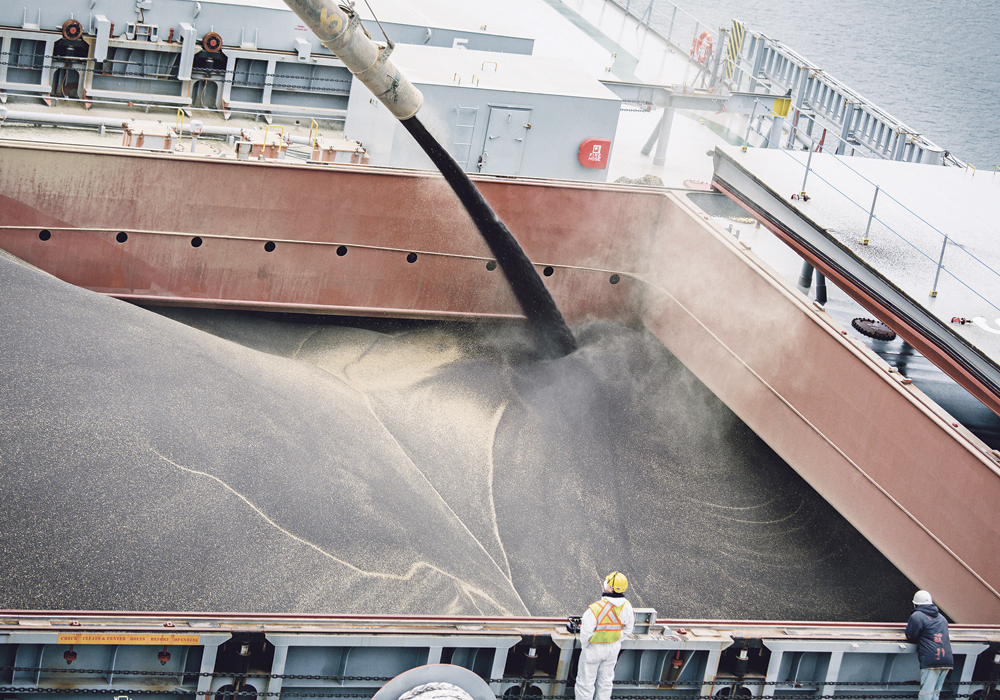SASKATOON — Canada’s canola shipments to Mexico are plummeting.
Exports to that destination totaled 279,900 tonnes through the first seven months of the 2023-24 campaign.
Related stories:
That is down from 801,100 tonnes for the same period a year ago, a 65 percent drop.
Read Also

New coal mine proposal met with old concerns
A smaller version of the previously rejected Grassy Mountain coal mine project in Crowsnest Pass is back on the table, and the Livingstone Landowners Group continues to voice concerns about the environmental risks.
Canadian canola sales have generally been lacklustre to date, but the declines are much less pronounced in other key markets.
Exports to China are down 22 percent, while sales to Japan have tumbled 20 percent.
Australia is eating Canada’s lunch in the Mexican market, said MarketsFarm analyst Bruce Burnett.
“The freight rates usually prevent that from happening,” he said.
“That isn’t the case this year. Their canola price is cheap enough that it can move into Mexico.”
Australia harvested a record 8.27 million tonne crop in 2022-23, more than doubling the previous five-year average.
So, there was plenty of carryout to add to the 2023-24 harvest of 5.68 million tonnes, which was the second biggest crop on record.
The excess supplies have kept Australia’s export price super competitive at a time when Canada’s price has been propped up by a thriving domestic crush sector.
“It’s a good news/bad news thing,” said Burnett.
He noted that Australian canola has been extremely popular in price-sensitive markets like Mexico, while China and Japan still tend to prefer Canadian canola.
However, Australian canola is still making inroads in those markets as well as in the United Arab Emirates, Pakistan and the European Union.
“They are being very, very competitive,” he said.
Part of the problem in the Mexican market has been that they are simply buying less canola this year.
The U.S. Department of Agriculture’s Foreign Agricultural Service (FAS) is forecasting 1.2 million tonnes of imports in 2023-24, a 17 per cent decline from the previous year.
The FAS also mentioned the stiff competition from Australia in a recent report on Mexico.
In fact, imports from Australia topped those from Canada during the stretch from October 2023 to January 2024 due to Australia’s lower price and similar quality, stated the report. That is highly unusual.
The good news is that FAS is forecasting a rebound to 1.4 million tonnes of imports in 2024-25, a 17 per cent year-on-year increase.
“Canada is forecast to remain the largest supplier of (canola) to Mexico based on price and logistical connectivity,” stated the FAS.
“However, Australia is expected to increase its import share due to price competitiveness.”
Mexico’s canola crush in 2024-25 is forecast at 1.43 million tonnes, a 19 per cent increase based on strong demand for vegetable oil and animal feed.
“Canola oil holds specific nutritional properties and attributes used for blending with other edible oils,” stated the FAS.
“With regards to the animal feed sector, canola meal is a key ingredient for the dairy and beef cattle fattening sectors, and consumption is likely to increase based on price competitiveness.”
Burnett said growing conditions in Australia should be good in 2024-25 due to the anticipated transition from an El Nino to a La Nina weather event.
“Chances are that they’re going to have better moisture there and probably increase their production, so they’re going to remain a very strong competitor in the canola export market,” he said.
Contact sean.pratt@producer.com


















